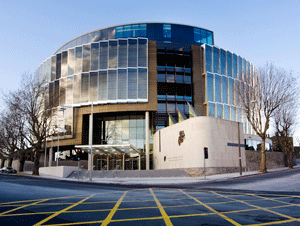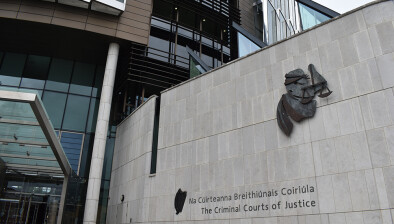Lawyers contest ‘legal basis’ for rape victim to waive anonymity so rapist can be named

Lawyers for a convicted child rapist have contested a victim’s request to waive her anonymity so that her abuser can be named.
Last March, a jury convicted the 41-year-old Wicklow man of repeated sexual attacks on the victim. The two grew up as neighbours and the attacks began when the woman was aged nine and continued for two years.
The man had pleaded not guilty to four counts of rape and two counts of indecent assault in Co Wicklow on dates between 1987 and 1989. He was sentenced to seven years’ imprisonment earlier this month.
His trial at the Central Criminal Court heard that he first raped the woman during a game of hide-and-seek when she was aged approximately nine years old and he was 17 years old. He raped the girl three more times during that summer and told her not to tell anyone as it was their secret.
During the trial last March, Mr Justice Micheal White made an order preventing the publication of the identity of both parties. He said he made this order at the request of the Director of Public Prosecutions (DPP).
The Criminal Law (Rape) Act 1981 makes it an offence to publish the identity of a man accused of rape unless he is convicted. It also prohibits the publication of anything that is likely to identify a woman as a rape complainant.
At the man’s sentencing, the judge continued the order made during the trial on the basis that identifying him could identify her. Subsequently, the woman contacted a reporter asking for the man to be named.
The case was brought back to court last Wednesday when lawyers for the State told the court that the woman now wished to waive her right to anonymity.
Kieran Kelly BL, for the DPP, told Mr Justice White that “she wants to be able to speak freely of her experience”.
The judge said the defendant should know there is an application to publish his identity. Mr Kelly told the court there is some grey area in the law around the anonymity of complainants. Mr Justice White said the defence should be on notice and listed the case for mention yesterday.
At this hearing, Paul Murray SC, for the DPP, told the court that the application to waive the anonymity of the victim was being contested by the defence.
Defence counsel Colman Fitzgerald SC told the court: “I cannot find a legal basis for what I acknowledge is routinely done, whereby the complainant waives her right to anonymity.”
Mr Murray told the court that once a person is convicted of rape, his right to anonymity “evaporates”.
Mr Justice White ordered that the man should be present for the hearing and adjourned the case until next Thursday. The court heard that last week the DPP had not sought an order for the man to be produced from custody for the hearing yesterday.
The victim came forward to make a statement in 2013 and there were a number of trials which collapsed before the man was convicted.
Declan Brennan, CCC.nuacht






